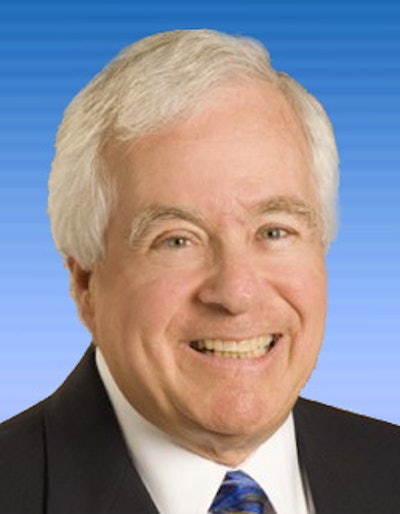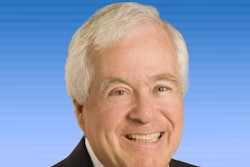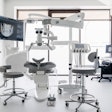
The dental school graduate is now ready to go out on his or her own and acquire a dental practice. He or she has worked as an associate and learned from the owner who has mentored and assisted the associate and is now looking for that first acquisition. There are many areas to resolve and advisers are needed to guide the associate in this probable largest purchase and borrowing step that has ever been taken by the associate.
What are some of the areas of concern? What advisers are needed to help make this transition a smooth one with as few problems along the way as possible? Let's start with who is needed for guidance so no material mistakes are made that may cost thousands of dollars. The associate (who has probably never spent much money on advisory services) will now be investing a lot into protecting himself or herself during the transition process.
The first adviser to call
The attorney is not the first adviser to call. Who is? It's the dental certified public accountant (CPA). Few attorneys understand the dental world.
Dental CPAs have seen many contracts for transitions, they know taxes from a dental perspective, and they are eager and ready to return phone calls and begin their work. The dental CPA can assist the attorney and point out various areas to remind the attorney about what should be in the contract of sale.
The dental CPA can explain the hidden costs of acquiring a dental practice, which will be discussed later in more detail. If the attorney listens, there will be a good synchronization between the attorney and the dental CPA.
The charges for someone who understands and can implement what needs to occur are not inexpensive. They are cheaper in the long term than a nondental CPA who may know a lot about business but little about a dental practice.
Finding the right dental CPA is not as difficult as you may think. The dental practice broker can be a big help in referring the right dental CPA to the prospective purchaser of the dental practice since he or she will probably have a lot of experience from other transitions in dealing with both sides of the transaction, meaning the buying dentist and the selling dentist and each of their dental CPAs.
The hidden cost of acquiring a dental practice
The buyer of a dental practice may not realize it, but there is a hidden cost involved with the acquisition of a dental practice. Most times, the seller of the practice is insisting on capital gains treatment when discussing the allocation of the purchase price of his or her dental practice.
Without using sophisticated means for the deferral or elimination of a material amount of the taxes due, the cheapest tax rate for a seller is the capital gains rate. It can be up to 50% cheaper for the seller to report goodwill and other capital-type assets upon the transition, as the rates can be as low as 20% to him or her compared to 50% if that same income was reported as ordinary income.
An example would be the reporting of goodwill consisting of patient lists, addresses, phone numbers, location, and other items compared to receiving a consulting agreement or a gross-up in salary or as a retirement plan benefit. The debate between the dental CPAs will provide each with reasons to use the method of choice that will resolve the issue and allow the transaction to occur.
Each of the dental CPAs will learn more about the other side's reasons why his or her method of asset allocation is reasonable and will assist in getting the job done. There is usually not much discussion about the taxes the buyer will incur upon the transition.
These are the hidden costs that should be discussed so the buyer of the dental practice is ready when the taxes appear. An example would be the loan amortization used to acquire the practice. It is important to note that any time a payment is made against the loan balance, the person making the payment only has two ways to do so. One way is by reporting the income necessary to pay the loan, which creates income for the payer of the loan, and there is a tax subject to that income. The other way is to refinance the loan and pay it down with another loan. That payment would not come from income and would not be subject to taxes.
These are critical points for the buyer to understand, because he or she will have to report the income, and unless other steps are taken, there will be a tax on that loan payment.
Understanding the ramifications of the hidden costs of acquiring a dental practice
Probably one of the best examples to assist in understanding the buyer's taxes on an acquisition is to use something that is familiar to almost everyone. When paying the home mortgage, most look at the payment each month and know that almost 100% of the payment is allocated to interest expense.
This allows the buyer to "write off" the interest on his or her tax return, subject to certain restrictions. When the mortgage starts to amortize, the portion that is allocated to the loan balance is not something that can be written off, since it is a loan payment.
Where does the money come from that is used to pay the loan balance? It must come from income that is generated by the payer of the loan. Since the amortization is such a small amount, most people don't realize that they are making that portion of the payment by reporting enough income to have the money to make the payment.
When the payment is made, the loan balance decreases, but also there is a tax on the loan payment amortization portion. As time goes on, the loan payment portion of the mortgage payment gets higher and the tax becomes a larger amount as well. This is where the dental CPA comes to the rescue of the buyer of the dental practice with proper planning for it.
Bruce Bryen is a certified public accountant with over 45 years of experience. He specializes in providing litigation support services to dentists, with valuation and expert witness testimony in matrimonial and partnership dispute cases. Bryen assists dentists with financial decisions about their practice, practice sales, evaluating whether to join a dental service organization, practice evaluation during divorce proceedings, and questions about the future or financial health of dental practices. He can be reached at [email protected].
The comments and observations expressed herein do not necessarily reflect the opinions of DrBicuspid.com, nor should they be construed as an endorsement or admonishment of any particular idea, vendor, or organization.



















